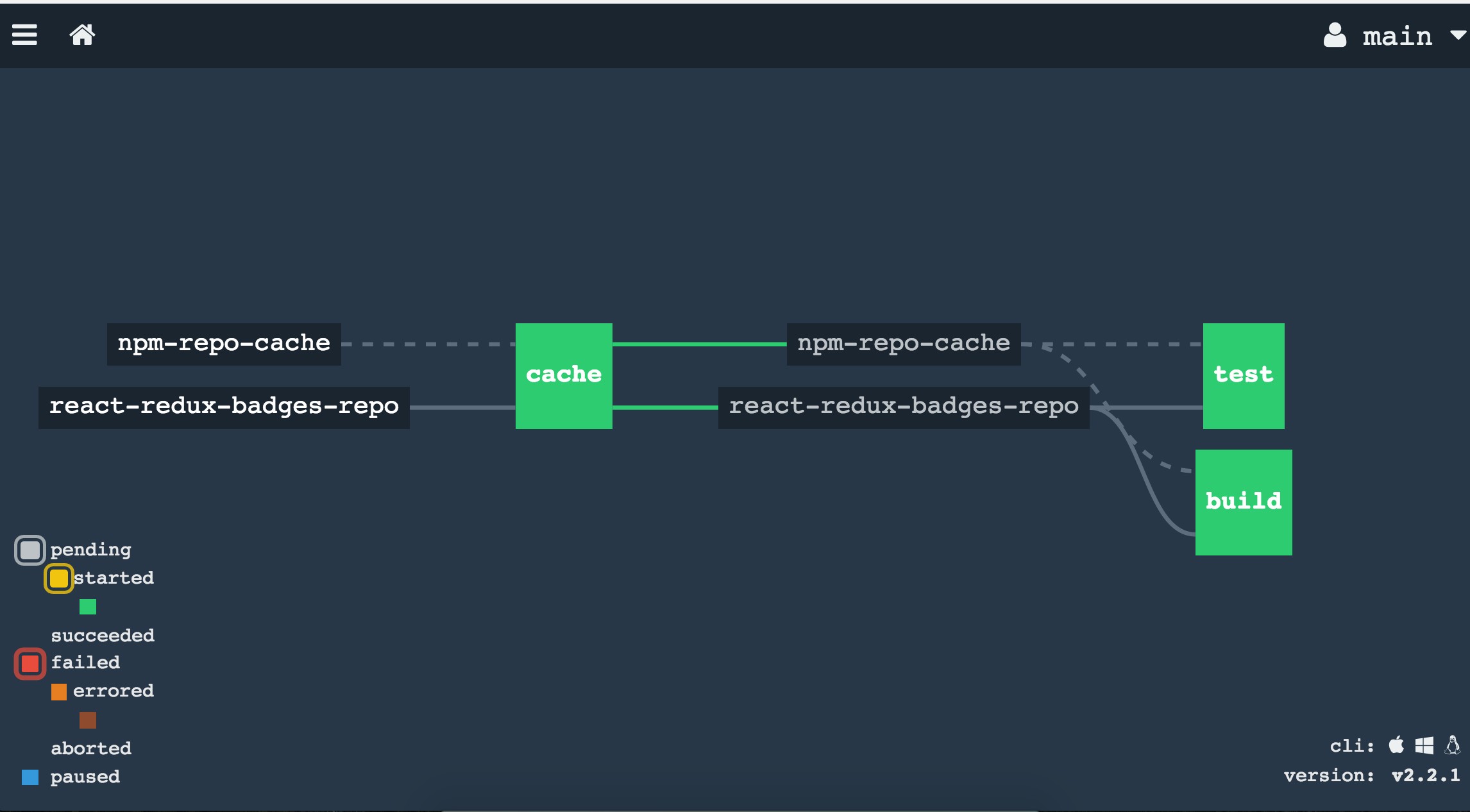npm-cache-resource
a Concourse resource for caching dependencies downloaded by NPM - built on mhart/alpine-node.
Versions
- latest ( npm 5.1.0 - yarn latest - alpine-node:latest )
- 9 ( npm 5.1.0 - yarn latest - alpine-node:9 )
- 8 ( npm 5.1.0 - yarn latest - alpine-node:8 )
- 7 ( npm 4.0.5 - alpine-node:7 )
- 6 ( npm 3.10.10 - alpine-node:6 )
- 4 ( npm 2.15.11 - alpine-node:4 )
- 0.12 ( npm 2.15.11 - alpine-node:0.12 )
- 0.10( npm 2.15.11 - alpine-node:0.10 )
Resource Configuration
resource_types:
- name: npm-cache
type: docker-image
source: {repository: ymedlop/npm-cache-resource, tag: "4"}
Source Configuration
<<:: Required. The source is the same as the corresponding git resource
Configuration to access a Git Private Repo
SSH:
private_key: Required. Private key.
HTTP(S):
username_key: Required. Username for HTTP(S) auth. This is needed when only HTTP/HTTPS protocol for git is available (which does not support private key auth) and auth is required.password_key: Required. Password for HTTP(S) auth.skip_ssl_verification: Optional. Skips git ssl verification by exporting GIT_SSL_NO_VERIFY=true.
Configuration to access a NPM Registry or Private Registry by User and Password.
registry-url: Optional. Private NPM registry to log in to (Default: https://registry.npmjs.org)registry-user: Required. Registry Username.registry-pass: Required. Registry User Password.registry-email: Required. Registry User Email.registry-scope: Optional. Registry Scope.
Configuration to access a Private Registry by Base64 Token
registry: Required. The location our private npm registry.token: Required. Our npm token.
Node.js Environment variables
node-env: Set NODE_ENV. (Default: development)
Configuration for projects living in subdirectories
project-path: Optional Relative path of subdirectory containing the project (i.e. where thepackage.jsonis).
Configuration use npm ci command
npm-ci-support: Optional Allow to use npm ci instead of npm install to install the npm modules into our resource. (Default: false)
Configuration use yarn cli
yarn-support: Optional Allow to use yarn to install the npm modules into our resource. (Default: false)
Configuration use bower cli
bower-support: Optional Allow to use bower to install packages into our resource (Bower dependency has to be in our package.json). (Default: false)
Whatever tool you use to generate the encoded username and password string, try to encode the string admin:admin123, which should result in YWRtaW46YWRtaW4xMjM=. `
Another example for a valid setup is jane:testpassword123 resulting in amFuZTp0ZXN0cGFzc3dvcmQxMjM=.
In our demo we are using admin:123456 resulting in YWRtaW46MTIzNDU2
Example
resources:
# a perfectly normal source repository with lashings and lashings of dependencies
- name: repo
type: git
source: &repo-source # apply a YAML anchor so we can refer to this in the cache resource
uri: https://github.com/ymedlop/npm-cache-resource.git
branch: npm-package-example
# a resource caching the dependencies listed in the source repository
- name: npm-repo-cache
type: npm-cache # as defined above
source:
<<: *repo-source # the source is the same as the corresponding git resource ...
paths: # ... except that it's only interested in files listing dependencies
- package.json
Behavior
check: Check for new commits
The repository is cloned (or pulled if already present), and any commits from the given version on are returned. If no version is given, the ref for HEAD is returned.
Any commits that contain the string [ci skip] will be ignored. This allows you to commit to your repository without triggering a new version.
in: Pulls a package from npm
Clones the repository to the destination, and locks it down to a given ref. It will return the same given ref as version. And fetch npm package from the package.json`.
Examples
jobs:
- name: cache
plan:
- get: repo
trigger: true
- get: npm-repo-cache
- name: test
plan:
- get: repo
trigger: true
passed: [cache]
- get: npm-repo-cache
passed: [cache]
- task: run tests
config:
platform: linux
image_resource:
type: docker-image
source: {repository: mhart/alpine-node, tag: "6"}
inputs:
- name: repo
path: /src
- name: npm-repo-cache
path: /cache
run:
path: sh
args:
- -exc
- |
mv cache/node_modules src
cd src && npm test
- name: build
plan:
- get: repo
trigger: true
passed: [cache]
- get: npm-repo-cache
passed: [cache]
- task: run build
config:
platform: linux
image_resource:
type: docker-image
source: {repository: mhart/alpine-node, tag: "6"}
inputs:
- name: repo
path: /src
- name: npm-repo-cache
path: /cache
run:
path: sh
args:
- -exc
- |
mv cache/node_modules src
cd src && npm run build
out: Nothing to do here....
Getting Started
You can see more examples here.
Credits:
- concourse git resource
- projectfalcon/gradle-cache-resource We are following this resource to create our npm cache resource.
License
See the LICENSE file for license text and copyright information.













